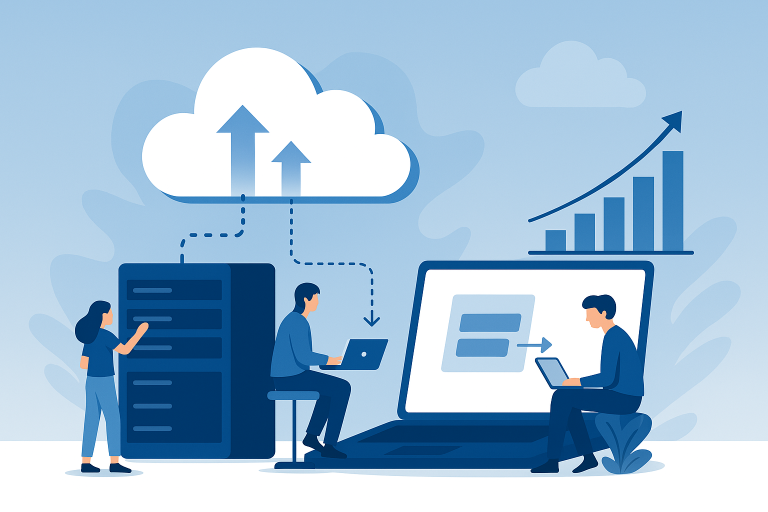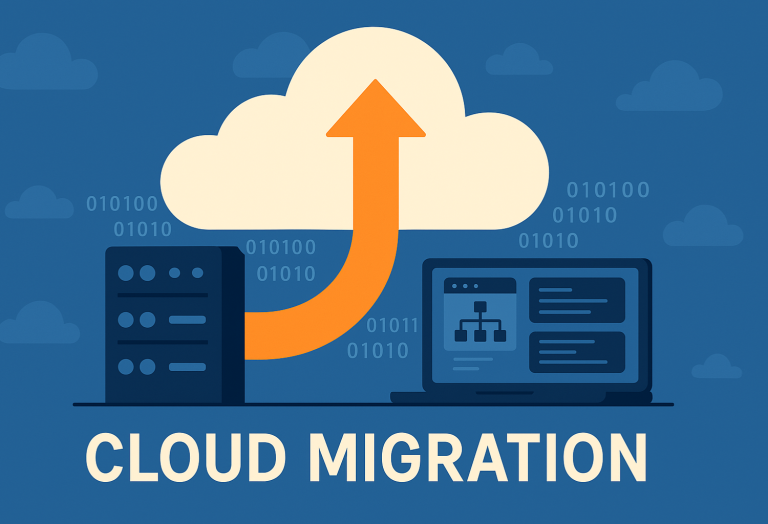May 2023

IT Service Provider Company in India that manage cloud infrastructures are primarily focused on platforms without servers that offer event-based capabilities that permit developers to create applications that respond to various triggers or events. By utilizing these event-driven capabilities, developers can create highly responsive and scalable applications that react to a wide range of triggers and events. Event-driven architectures powered by serverless computing allow for efficient resource utilization, cost optimization, and flexibility in application development. The following are some of the typical event-based capabilities provided by these platforms:
- Events in Cloud Storage: These platforms can activate functions when changes occur in cloud storage services like Amazon S3, Azure Blob Storage, or Google Cloud Storage. Changes like file uploads, deletions, or modifications can be utilized to trigger serverless functions for further actions or processing.
- Events in Databases: Several platforms without servers can respond to database events such as inserts, updates, or deletions in databases like Amazon DynamoDB, Azure Cosmos DB, or Google Cloud Firestore/Realtime Database. Developers can create functions to process data changes or perform validations based on these events.
- Events in Message Queues: These platforms frequently incorporate messaging and event streaming services like Amazon Simple Notification Service (SNS), Azure Service Bus, or Google Cloud Pub/Sub. Developers can subscribe to these messaging systems and activate functions when messages are published, allowing real-time processing and event-based architectures.
- HTTP/ Webhook Triggers: Serverless functions can be activated by incoming HTTP requests or webhooks. This empowers developers to generate APIs or develop integrations that respond to external actions or events. Cloud platforms such as AWS Lambda, Azure Functions, and Google Cloud Functions offer built-in functionalities to handle HTTP-based triggers.
- Time-Based Triggers: Serverless platforms frequently offer scheduling capabilities, allowing functions to execute at specified times or intervals. This feature is beneficial for running scheduled tasks, performing periodic operations, or batch processing.
- Infrastructure Triggers: Serverless platforms can also respond to infrastructure-related events. For instance, Amazon CloudWatch Events can activate serverless functions based on events like changes to AWS resources, system health checks, or operational events. These events can be leveraged to automate infrastructure management or execute custom logic.
- Custom Triggers & Events: Serverless platforms typically provide mechanisms to define custom triggers or events. This enables developers to create custom workflows and event sources tailored to their application’s requirements. Custom events can be generated by other services or components within the application architecture.
With a serverless platform, the role of a DevOps expert is critical to the smooth operation and efficient management of the platform. While the traditional concept of server management has been abstracted away in serverless architectures, there are still several areas where DevOps practices come into play. The collaboration of DevOps consulting services with IT will be beneficial in the complete transition process. Here are some key responsibilities of a DevOps professional on a serverless platform:
- Infrastructure as Code (IaC): DevOps practitioners use infrastructure as code tools such as AWS CloudFormation or Terraform to define and manage serverless infrastructure. They create templates that automate the provisioning and configuration of resources and ensure consistency and repeatability across environments.
- Continuous Integration and Delivery (CI/CD): DevOps engineers deploy CI/CD pipelines to automate the building, testing, and deployment of serverless applications. You configure triggers to initiate deployments while changes are pushed to the version control system, ensuring fast and reliable releases.
- Incident management and troubleshooting: When problems arise in a serverless platform, DevOps professionals are responsible for incident management and troubleshooting. They investigate root causes, coordinate with relevant teams, and take corrective action to restore normal operations as quickly as possible. In the near future, these reports will be automatically generated by AI, which includes root cause analysis and corrective actions, when the DevOps specialist starts feeding data to the AI application.
- Cost Optimization: Serverless platforms offer cost benefits only by charging real-time execution of tasks. DevOps experts monitor costs, analyze usage patterns, and identify opportunities to optimize resource allocation and reduce costs without impacting performance.
By working together, cloud infrastructure companies and DevOps teams can bring to market new serverless platforms that address the specific needs and challenges of modern application development and delivery. Their collaboration ensures the success, adoption and continuous improvement of the platform.

